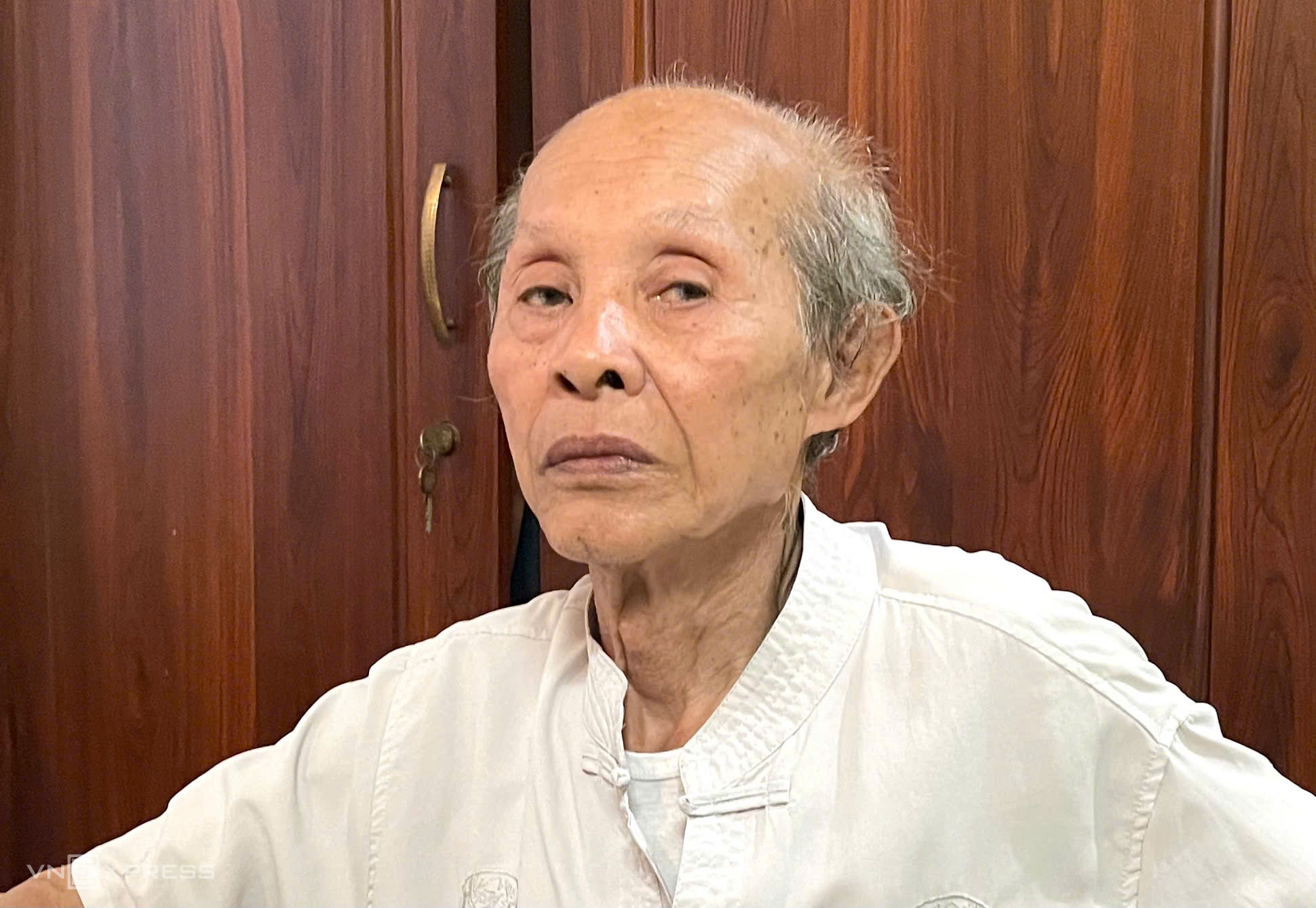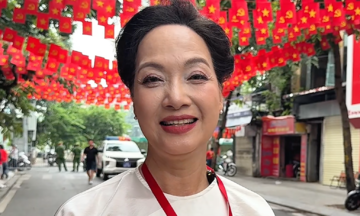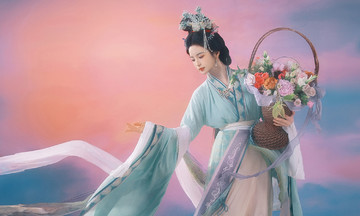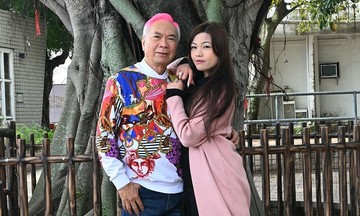Nguyen Van Toan's house is tucked away in a small alley off Giai Phong Street in Hanoi, a quiet retreat from the city's hustle and bustle. Having been deaf for the past 5 years, he has posted a sheet of paper with his phone number on his gate for visitors to contact him. Inside, he keeps old calendars, small pieces of paper, and pens ready so people can communicate with him in writing.
The 86-year-old artist lives with his youngest son's family and is cared for by his daughter-in-law. Though deaf, he remains mentally sharp, with bright eyes and a clear, strong voice. He's quick to offer refreshments and make guests comfortable. He smiles upon learning that he has recently gained attention through a video posted on TikTok by a ride-hailing driver.
In the video, the young man recognizes “Uncle Van Toan” and refuses payment for the ride. In return, the artist gifts him a notebook filled with traditional remedies, including his address and phone number. “If anyone at home is sick, they can come to me for help. I don't accept gifts or money,” he says in the video. Many commenters express nostalgia for his role in the comedy sketch "Con nghien" ("The Addict"). Some viewers who live near him mention his cheerful and sociable nature.
At his advanced age, the artist's greatest desire is good health. He also wishes for a motorbike for independent travel. He once owned one, but his daughter and son-in-law “confiscated” it, fearing his deafness might lead to accidents. Disliking the speed of ride-hailing services and suffering from back pain, he prefers the bus for getting around the city.
He eats simple meals, consuming only about half a bowl of rice per sitting, keeping him feeling light. While not a vegetarian, he limits his intake of certain meats. He maintains a daily routine of chanting Buddhist scriptures, meditating, and praying in the morning. At 9:30 am, he travels to the city center to offer incense at his mother’s family altar and to honor deceased members of the Vietnam Drama Theater. He usually spends his afternoons at home, resting or meditating if there are no visitors.
In his youth, he developed an interest in traditional medicine. While touring, he would seek out renowned local healers, offering them theater tickets in exchange for remedies. Over time, he amassed considerable knowledge of treating ailments like colds and sore throats.
He recalls a time when many people sought his advice, sometimes seeing 10 people a day, though the number has decreased recently. He refuses any payment or gifts, committed to helping others selflessly. Once, a woman left 30,000 VND as a thank you, but he was unable to return it. Another time, he discreetly tucked money into his notebook of remedies before giving it to visitors from southern Vietnam. The notebook meticulously details ingredients and precautions, and for more complex cases, he provides referrals to doctors or reputable clinics.
In his room, Buddhist teachings are carefully taped to the wall. He offers prayers whenever he passes a temple. He believes in living a virtuous life, and feels this has brought him kindness from strangers, like the young person who turned back to help him cross the street or the motorbike drivers who have offered him free rides.
 |
Artist Nguyen Van Toan at his home. Photo: Phuong Linh |
The artist acknowledges his modest means but accepts his fate. "I may not be better than anyone," he says, "but I'm better off than many." In his early career, besides acting, he took on various jobs to support his family, from construction work and cleaning toilets to selling tea. He found joy in honest work, unafraid because he "wasn't stealing from anyone," even when questioned about his diverse occupations.
Despite the hardships, he never considered abandoning his passion for art. He worked at the Vietnam Drama Theater until his retirement in 2000, continuing to act in television dramas and comedy sketches afterward. While his television roles have faded from memory, he cherishes his stage performances in plays like "Hon Truong Ba, da hang thit" ("Truong Ba's Soul in a Butcher's Skin") and "Dai doi truong cua toi" ("My Captain"). The sketch "Con nghien," with artist Xuan Bac, remains a particularly fond memory.
He humbly refers to himself as a cultural worker rather than an artist, preferring to be called "Uncle Van Toan." He smiles radiantly, touched to know he still holds a place in the public's heart after years away from the spotlight.
Phuong Linh












